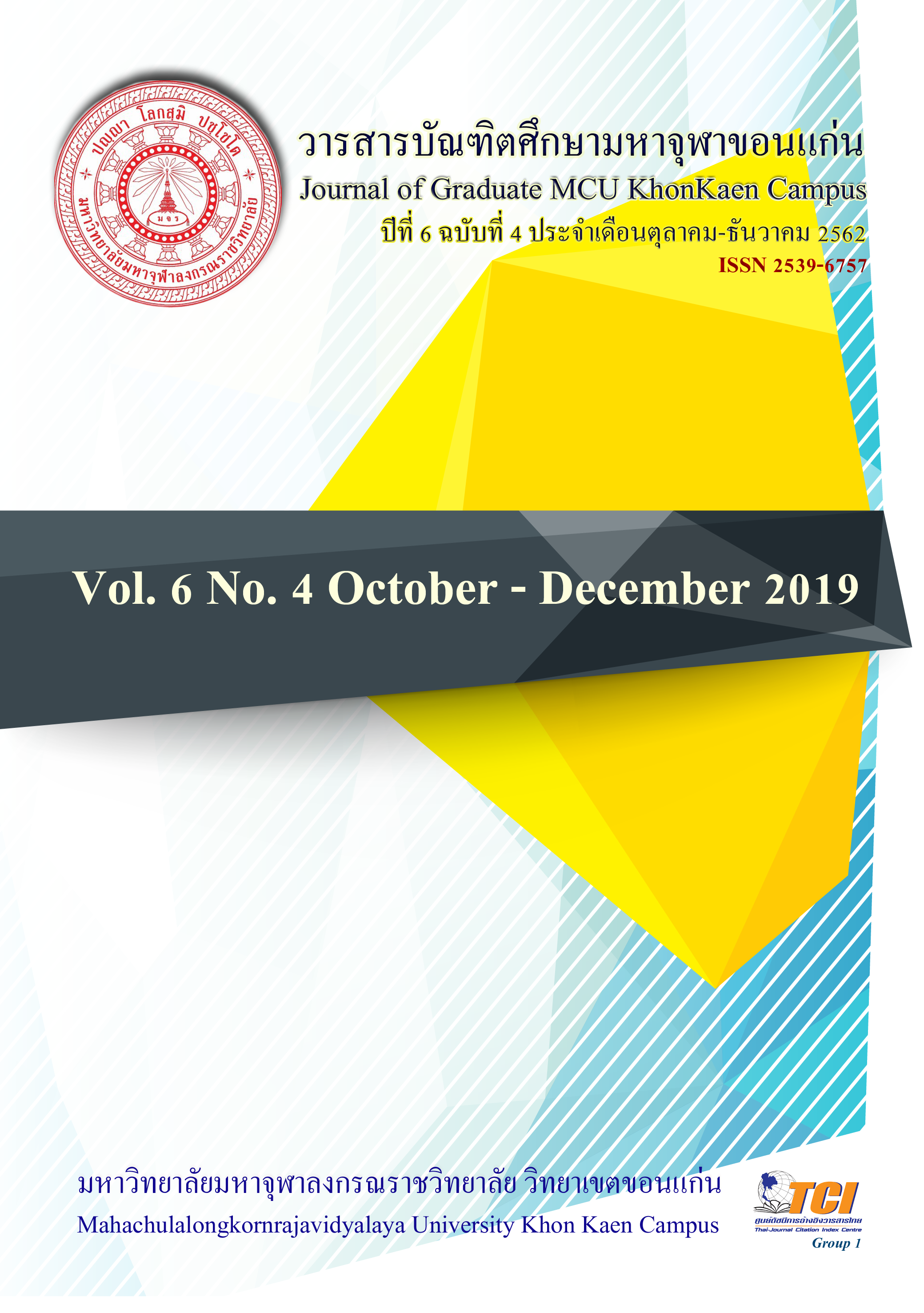A Study of Buddhist Learning Model to Promote Desirable Characteristics of Students In Terms of Ethics and Morality in Nonghan Industrial and Communities Education College Under Office of the Vocational Education Commission
Main Article Content
Abstract
The aims of this survey research were: 1) to study the desirable characteristics of the students in terms of morality and ethics; 2) to study the Buddhist learning model to promote the desirable characteristics of students in terms of morality and ethics; 3) to evaluate the Buddhist learning achievement to promote the desirable characteristics in terms of ethics and morality of the students in Nonghan Industrial and Communities Education College under the Office of Vocational Education Commission. The samples of this study were 100 of high vocational certificate (diploma) students selected by random sampling. The research tool was a questionnaire and the statistics used in the data analysis were: Frequency distribution, Percentage, Mean, Standard Deviation, t-test, f-test and One Way ANOVA.
The research results were as follows:
1) 77% of the samples was female. The majority (63%) of the samples were studying in the second year high vocational certificate level and their grade point average (GPA) were between 3.01-3.50. 47% of them had gained the Dhamma studies education and 38% of them completed the first level of the dhamma studies. 61% of them has experienced in the training of Buddhist idol/ ethics and morality training camps between 6-10 times and 96% of them came from other provinces in the northeast region.
2) The sample opinion analysis of the Buddhist learning model to promote the desirable characteristics of students in terms of morality and ethics showed the mean score of the sample opinion at 4.13. The mean scores of four studied aspects: curriculum to promote learning, measurement and evaluation of the model for organizing the learning activities, learning and teaching management and learning media are at a high level.
3) The sample opinion analysis of the Buddhist learning model to promote the desirable characteristics of students in terms of morality and ethics by classification of the sample personal factors: gender, age, experiences in Buddhist idol training/ morality training camps, domicile showed indifference. Classified by the following sample personal factors: GPA, Dhamma studies education, the statistic scores were also indifferent. However, the sample opinions towards the learning media to promote the desirable characteristics of the students in terms of ethics and morality were different with the statistical significance level of 0.05. This therefore accepted the hypothesis as first determined.
Article Details
References
Nawaminthrachinuthit Horwang School, Nonthaburi, Pak Kred District Nonthaburi Province.
Mahachulalongkornrajavidyalaya University.
Siriwan Sripahol. (2015). Development of a Distance Training Package on Management of Learning Activities to
Promote Patriotic Consciousness in Students with the Use of Historical Contents and Resources for Social
Studies Teachers. Research report : Sukhothai Thammathirat Open University.

